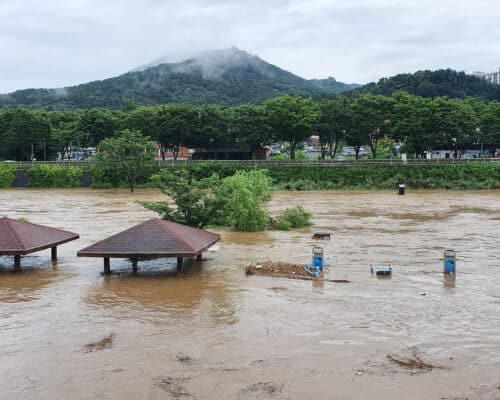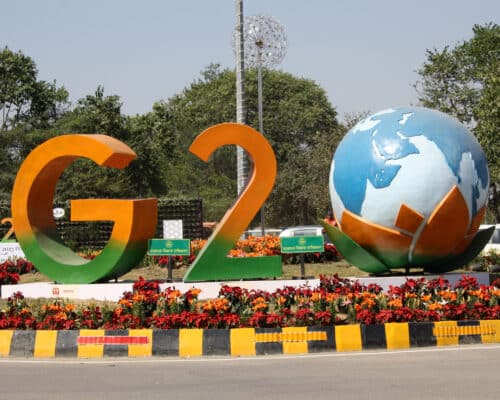Features

Climate Change in South Korea: Floods, Heat and Looking Away
South Korea's strategy to address climate change's impacts is reactive, not proactive, while its newly adopted policies and upcoming plans continue to undermine renewables.

Heatwaves in 2023: A Glimpse Into the Future of Climate Change
The G20 Summit, the UN Climate Ambition Summit and COP28 are just some of the opportunities to seal the fate of fossil fuels.

The G20 Energy Transitions Working Group: A Wasted Opportunity For Progress
The G20 ETWG became the latest conference that failed to produce meaningful fossil fuel phaseout progress.

Shell Pushes LNG Agenda and Backtracks on Sustainability
Oil and gas major Shell has decided to place profits over sustainability, backpedalling from previous commitments to rein in its carbon emissions. Governments must find ways to regulate these fossil fuel-producing giants.
Renewable Energy Investing Needs in 2023
The clean energy transition needs private capital that works in concert with favourable policies, regulations, decarbonisation goals and green capital market development.
COP28: Qatari and US LNG Uptick To Throw Climate Goals Into Chaos
COP28 Dubai could be jeopardised by massive new LNG investment by Qatar and the US as the world attempts to move away from fossil fuels.

Bangladesh’s Energy Needs and a Fair and Just Energy Transition
The switch towards renewable energy will not be the main threat to Bangladeshis' jobs and well-being. It's climate change.
The Biggest Renewable Energy Market Jump in 2023 and 2024
The IEA's June 2023 Renewable Energy Market Update forecasts an unprecedented wind and solar power boom globally.
Solar Energy Investment is Expected to Overtake Oil Production For the First Time
While investments in fossil fuels are slowing down, the IEA's World Energy Investment Report 2023 says they remain way above the levels needed to reach net-zero by 2050.

Vietnam Has Approved the PDP8: What Comes Next?
The approval of the PDP8 is finally here. While not without its potential flaws, the plan allows Vietnam to start leaping towards its net-zero by 2050 target – a moment that energy investors have long been waiting for.
MHI Greenwashing Tactics Demand Closer Scrutiny
Mitsubishi Heavy Industries (MHI) is pushing its net-zero emissions by 2040 pledge at full force. But, its strategy includes relying on gas-fired power projects, questionable carbon capture technology and profiting as a major carbon credit broker. These tactics demand closer media scrutiny and overall environmental monitoring.
European Green Deal: What Asia Can Learn
Following the shining example of EU member states and designing policies similar to the European Green Deal can help developing Asia build a more resilient, sustainable and cost-efficient energy system.
Taiwan’s LNG Development Overpowers Its Renewables Ambitions
The Taiwanese government has earmarked some USD 32 billion for renewables, hydrogen and carbon capture and storage (CCS) investments to move the country’s energy development in the right direction. However, it also continues a major liquefied natural gas (LNG) build-out as part of its long-term energy mix strategy, putting the country in an energy supply and climate mitigation quandary.
G7 Gas Move a Likely Nod to US and Japanese Interests
The G7 just concluded its meeting in Hiroshima. The group made several decisions impacting the global energy sector, including further reliance on coal-fired power projects and a problematic call to continue gas and liquefied natural gas (LNG) investment. These decisions come in light of long-term US and Japanese gas interests and development.
Most Popular
Categories
-
10
-
34
-
126
-
4
-
17
-
46
-
52
-
11
-
10
-
15
-
24
-
6
-
1
-
5
-
6
-
280
-
199
-
17
-
24
-
1
-
1
-
23
-
41
-
44
-
87
-
18
-
86
-
41
-
17
-
11
-
43
-
53
-
86
-
295
-
22
-
44
-
36
-
10
-
42
-
36

